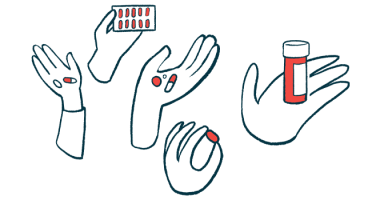GW Pharmaceuticals Shares New Data on Epidiolex at European Epilepsy Congress

GW Pharmaceuticals has presented positive data on the safety and effectiveness of Epidiolex, recently approved by the U.S. Food and Drug Administration (FDA) to treat epileptic seizures in Dravet and Lennox-Gastaut syndromes, as well as the potential mechanisms behind its anti-epileptic properties.
The data were presented at the 13th Annual European Congress of Epileptology (ECE), held recently in Vienna, Austria.
GW Pharmaceuticals’ lead cannabinoid compound, Epidiolex, received FDA-approval in June for the treatment of seizures associated with both Dravet and Lennox-Gastaut syndromes, in patients ages 2 and older. These syndromes are rare and severe forms of childhood-onset epilepsy that are very difficult to treat.
In epilepsy, the endocannabinoid system — a collection of receptors, mainly in the brain, that are configured to accept only cannabinoids — is defective and can lead to seizures. Epidiolex is a purified form of cannabidiol (CBD), the most abundant non-psychoactive cannabinoid in the marijuana plant, that mimicks the natural cannabinoids acting on the endocannabinoid system.
In nine oral and poster presentations, the company revealed additional data regarding the safety and effectiveness of Epidiolex in both syndromes, its interaction with common anti-epileptic therapies, and its underlying mechanisms.
“There is still a huge unmet medical need for effective medicines that help people suffering from severe forms of treatment resistant epilepsy, and we believe that our CBD oral solution may present an important new therapeutic option in the future,” Justin Gover, GW Pharmaceuticals’ CEO, said in a press release.
The study “Maintenance of long-term safety and efficacy of cannabidiol treatment in Dravet syndrome: results of the open-label extension trial (GWPCARE5),” showed the interim results of an open-label extension trial (NCT02224573) evaluating the long-term safety and effectiveness of Epidiolex in patients with Dravet syndrome.
This extension trial was opened to participants of two Phase 3 studies (NCT02091375 and NCT02224703). The current analysis included 189 Dravet patients. Participants were taking a median of three anti-epileptic therapies and received Epidiolex for a median of 274 days.
Epidiolex treatment reduced convulsive seizures by 38-44% and total seizures by 39-51%. It also improved the Subject/Caregiver Global Impression of Change (S/CGIC) score in roughly 80% of patients at six months and at one year of treatment. This scale evaluates all aspects of patients’ health and assesses if there has been an improvement or decline in clinical status.
Epidiolex was well-tolerated and the safety profile was consistent with those of previous trials. Serious adverse events were reported by 29% of patients, with 8% considered to be associated with Epidiolex.
Three studies evaluated the interaction of Epidiolex with other anti-epileptic therapies, such as Onfi (clobazam), Depacon (sodium valproate), and Diacomit (stiripentol).
The study “Bidirectional drug-drug interaction with coadministration of cannabidiol and clobazam in a Phase 1 healthy volunteer trial,” showed that the combination of Epidiolex and Onfi resulted in a bidirectional interaction between the two compounds, increasing the levels of their active molecules in the blood of healthy people.
The safety profile of either treatment alone or in combination were similar, with headaches and fatigue being the most common adverse effects reported.
The two remaining studies “A phase 2 trial to explore the potential for a pharmacokinetic drug-drug interaction with valproate when in combination with cannabidiol in adult epilepsy patients,” and “Bidirectional drug-drug interactions with coadministration of cannabidiol and stiripentol or valproate in a Phase 1 healthy volunteer trial,” evaluated the interaction between Epidiolex and Depacon or Diacomit in people with Dravet or Lennox-Gastaut syndromes, and in healthy volunteers.
No evidence of clinically relevant interactions between these compounds was found, but the Epidiolex-Depacon combo was associated with a higher frequency of rashes in healthy people.
The results of two other studies, “A role of the orphan G-protein coupled receptor in the anti-epileptic properties of cannabidiol,” and “Antiseizure properties of cannabidiol are attenuated in the absence of transient receptor potential vanilloid 1 receptors,” suggested a potential involvement of GPR55 (a cannabinoid receptor) and TRPV1 (a receptor associated with pain and inflammation) in the anti-epileptic action of Epidiolex.
“Our comprehensive pre-clinical and clinical programs provide an understanding of the way in which CBD exhibits anti-seizure effects and further supports its efficacy and tolerability profile in patients living with two of the most difficult-to-treat forms of epilepsy,” Gover added.
Epidiolex is expected to be available to patients in the U.S. this fall. The compound also is under review by the European Medicines Agency, and a final decision is expected in the first quarter of 2019.







